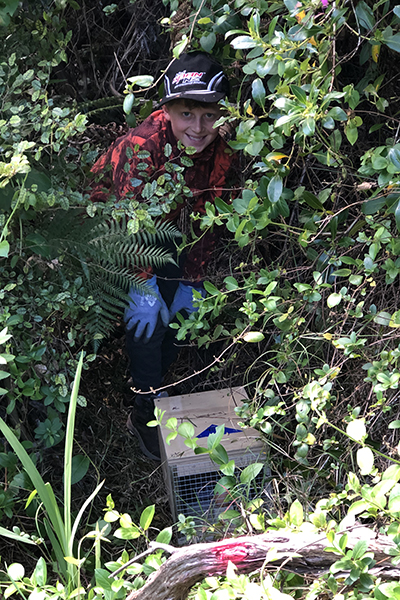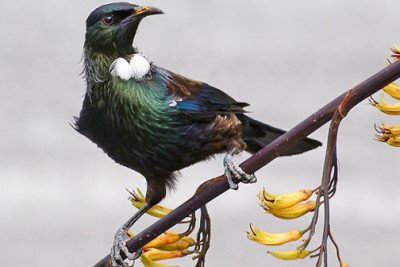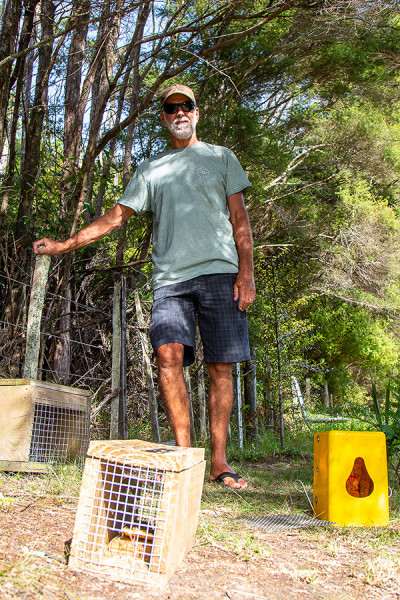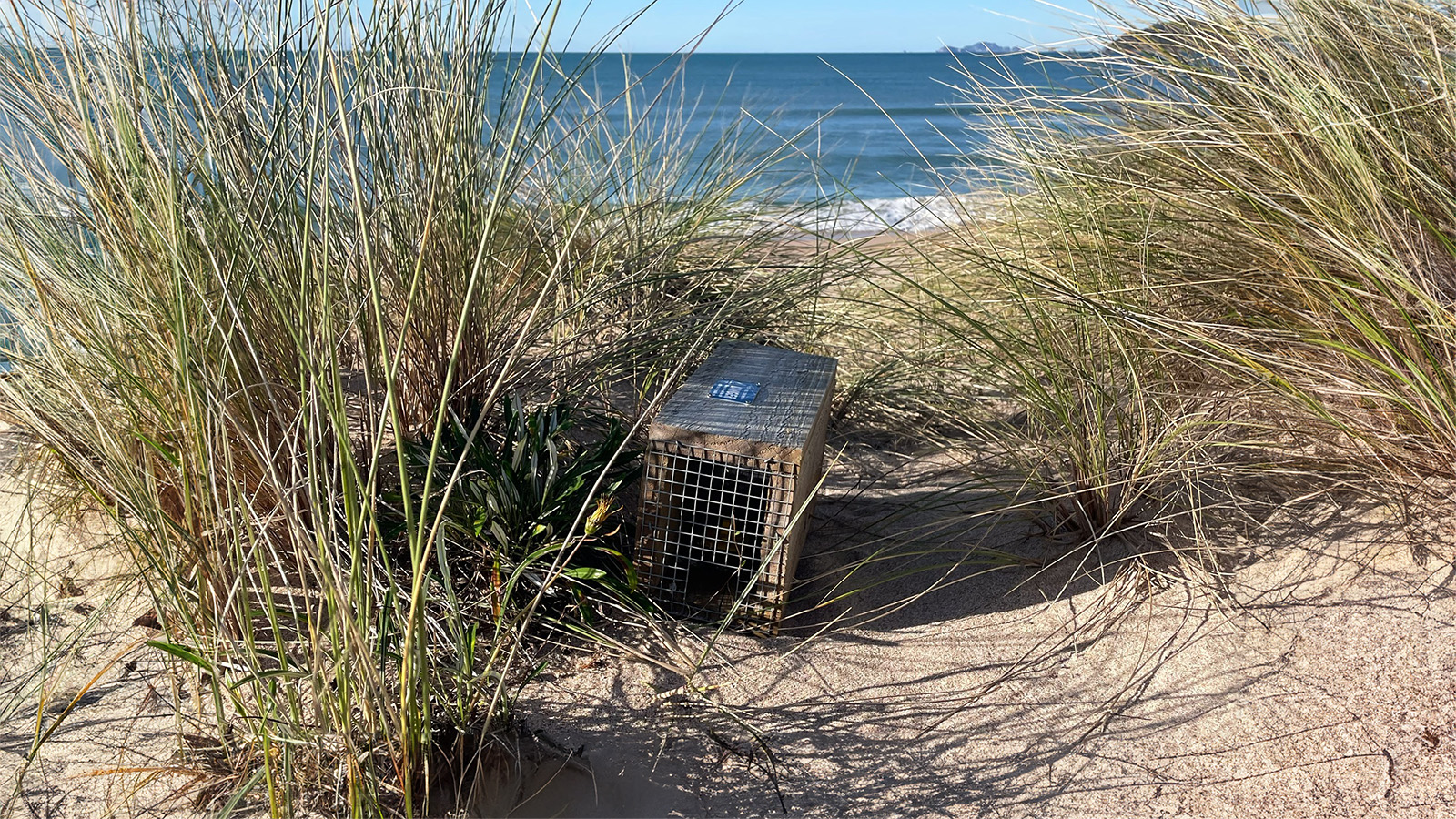
There are now 27 trap lines that are checked regularly by a small but dedicated group of 17 volunteers.
They say a ring symbolises commitment.
And Pest Free Tairua is nothing but committed when it comes to putting a ring of traps around the coastal town to rid it of the rats, stoats and other predators that kill native species and to prevent reinvasion.
Allie Cotter, a keen trapper for Pest Free Tairua, says they’re getting close, with 95 per cent of the town now ring-fenced.

People are seeing more tūī since trapping began.
“We’re just now in the process of adding the last traps and getting consent from landowners which means we’ll then be able to fill in the last gaps, so we’ll be completely ring-fenced,” says Allie, who has lived in Tairua for eight years and comes from a family involved in working with seabirds and conservation.
Pest Free Tairua started in 2016 after a few local women, including Allie, noticed a stark lack of bird life.
“This was even around the golf course and that is an area surrounded by native bush and a wetland – so you’d think it’s somewhere that our native birds should be thriving,” says Allie.

A goal of Pest Free Tairua is that every property in town will have at least one trap.
“But it turned out that the predators were thriving better, so we thought that wasn’t good enough and we’d better do something about it.”
The women checked in with Waikato Regional Council’s local biosecurity officer and Predator Free Hauraki Coromandel Trust to see what they could do.
There were already a number of traps in the wetlands and along the estuary that had been set up by the council, so they took over the care of them, roped in some more volunteers, and have been steadily extending the town’s trapping network ever since.
Funding from Waikato Regional Council’s Small Scale Community Initiatives Fund on two occasions (2022/23 and 2023/24) enabled the group to get to “95 per cent” and increase the density of the trapping network in the town.
There are now 27 trap lines (430 traps) checked regularly by a small but dedicated group of 17 volunteers, and they have support from local businesses such as the 4 Square, Tairua Butchery and Hammer Hardware.
“In a perfect world, every property in town would have at least one trap, and this is another goal of ours,” says Allie.
“We’re getting more and more local businesses and individuals involved. Even if they just pay for their own trap then we can check and clear them regularly on behalf, and that’s a win-win. It’s a win for the landowner who gets free pest management, it’s a win for our native species, and it’s a win for everyone who lives or visits here to enjoy our piece of paradise.”
Allie says there are plenty of reasons to support Pest Free Tairua.
“By controlling predators, we’re not just supporting native birdlife but native skinks, geckos and insects, too.
“There’s an abundant kiwi population north of Tairua, thanks to the awesome efforts of Whenuakite Kiwi Care Group, and they’re already making their way south. We hope to see them continue coming our way and will endeavour to make Tairua a safe place for them to call home.”
In the meantime, people are seeing more tūī, kererū and riroriro (grey warbler).
Wetland species are also improving, with a few moho pererū (banded rail) pairs successfully raising several fledglings to adulthood this year.
Having kōtuku ngutupapa (royal spoonbill), tara (white-front tern) and poaka (pied stilt) feeding in the estuary are also a welcome sight.
Unfortunately, says Allie, some bird species are still struggling because of factors out of the group’s control.
Tūturiwhatu (dotterel) and tōrea pango (variable oystercatcher) nests and chicks are failing because of cats, dogs and people on the beach.
“We really need people to be mindful over the nesting period to not walk through the fenced-off nesting areas and keep their dog on a lead; also keep your cat inside at night and put a bell around their neck.”
Allie is also really keen to work with the local primary school to educate and inspire tamariki regarding conservation and encourage them to participate in trapping.
“We really want to get them excited from a young age about the cool birds and reptiles, healthy plants, and learn hands-on what can be achieved if we catch the bad guys.”
If you would like to volunteer or donate a trap to Pest Free Tairua, please get in touch with them at pestfreetairua@gmail.com. They are also on Facebook and Instagram.

